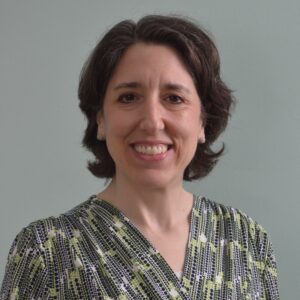Have you noticed that our current medical system has many individual specialists to treat each separate organ system? A gastroenterologist for intestinal issues, a cardiologist for heart conditions, a psychiatrist for mental health concerns, and so on. Although each of these systems are often assessed and treated individually, in reality our body doesn’t operate as separate systems, but is highly interconnected. A problem in one system can manifest as symptoms in another, seemingly unrelated, system. For instance, you may be surprised to learn that inflammation in the intestinal tract can show up as mental health symptoms! Traditional medication and therapy, while helpful, may fail to produce full remission of symptoms if gut imbalances are not addressed. A whole-body approach to ADHD, anxiety, and depression, such as that used in functional medicine, will look closely at intestinal function and also search for other root causes of the problem, such as nutrient deficiencies and food sensitivities. If you have never heard about functional medicine, you are not alone. It wasn’t until I had to help myself recover from chronic fatigue 5 years ago that I learned about this alternate health care paradigm. It took me 18 years as a general pediatrician to discover it, and I am so glad I finally did! I now have so many more “tools in my toolbox” to assist patients on their healing journey.
The concept of functional medicine was developed in 1990 by Dr. Jeffery Bland to better treat and prevent chronic illness. It is a comprehensive model of health care that considers all potential contributing factors to a person’s illness, such as: genetics, weaknesses in biochemical pathways, inflammation, environmental toxic exposures, physical and emotional stress, and lifestyle factors like diet and nutrition, sleep, and exercise. Functional medicine practitioners ask how and why illness occurs and aim to restore health by addressing the root cause of disease for each unique individual. Through this lens, a diagnosis of ADHD, anxiety or depression is viewed as a symptom of underlying imbalances in the body that can be identified using a detailed history of a patient and physical and targeted testing. My favorite tool to use in helping patients is surprisingly simple……. LISTENING! Since I spend 1.5 hours with patients during their first appointment (in addition to having parents complete a 12-page history intake form prior to our first appointment), I am able to use some of my “medical detective skills” to search for the “why” behind a patient’s symptoms. For instance, I am attentive to how many doses of antibiotics a patient has taken in their lifetime, as the state of balance or imbalance of our microbiome (gut bacteria) has a HUGE impact on just about every aspect of health, including neurotransmitter production. Intestinal yeast overgrowth is another possible result of frequent antibiotic use (especially when combined with a high carbohydrate/sugary diet); this can cause mood symptoms and brain fog. A finding of many white spots on the fingernails during my physical exam may clue me into a potential zinc deficiency, which is an important nutrient needed for dopamine production (dopamine is often low in those with ADHD).
Based on clues gathered from the history and physical, blood tests are ordered through traditional labs. Nutrient levels like zinc, copper, B vitamin levels and ferritin (iron stores) are important to assess. But even basic chemistries can give useful information. Stool tests from specialty labs are often used to search for yeast overgrowth or other imbalances of the microbiome and digestive dysfunction.
Treatment plans are prescribed on an individual basis. Since there are usually several factors contributing to a patient’s symptoms, several avenues of intervention are usually needed like nutrient supplementation, herbal therapies to help gut microbial overgrowths, diet, and lifestyle changes. I am a firm believer in the idea of “Food as Medicine” because food impacts our physiology in profound ways (both for the better and for the worse). Taking an individual approach to nutrition allows us to explore whether even seemingly healthy foods could be a source of a food intolerance manifesting as irritability, inattention, or sleep problems.
I also always incorporate foundational principles in my treatment approach to set the stage for the body to heal: MAXIMIZE the good stuff (sleep, play, time in nature, laughter, whole foods (organic as much as possible), meaningful relationships) and MINIMIZE the bad stuff (processed food (I like to call “fake food”), stress, and toxins). Research shows that these types of interventions are extremely powerful in helping the body heal. Traditional psychiatric medications may still be needed in conjunction with functional medicine interventions to receive the maximum benefit, but lower medication dosages may be possible as we re-balance the body. While I will not be prescribing psychiatric medication, I am happy to partner with other prescribing practitioners to offer comprehensive care for each patient.
The functional medicine approach does require patience because there can be several layers of body dysfunction that need to be addressed. Embarking on this path is admittedly an investment of time, energy, and resources. However, I have seen the power of functional medicine work in my own health, so I feel obligated to share this information with parents looking for alternative solutions to help their child. I aim to partner with families to walk through the process at the pace that feels comfortable for them and to empower parents to be an active participant in their child’s health care. Change is hard for everyone, I know! I’ve been there! Ultimately, though, this type of medical care can help create a better future of health for the whole family.
My new practice, Pediatric Whole Health, LLC, is accepting new patients up to age 25yo. For more information, please visit www.pediatricwholehealth.com.

Angela Camasto, M.D.

